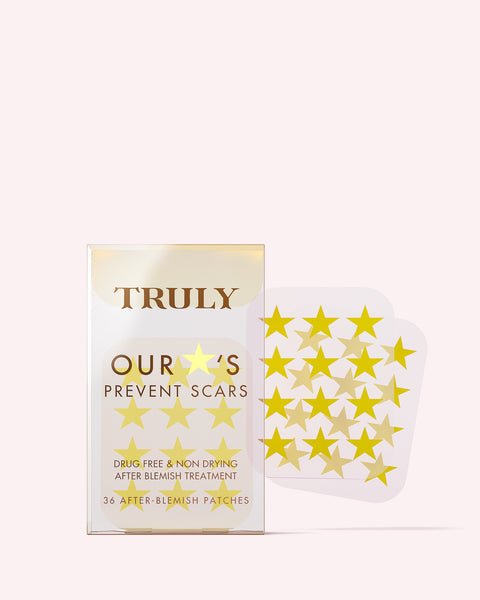Does ice cream cause acne? Here’s everything you should know about the ice cream and acne connection.
Have you ever noticed a sudden breakout after indulging in a pint of rocky road or a scoop of vanilla soft serve? Many people with acne-prone skin wonder whether dairy-based desserts like ice cream could be the culprit behind clogged pores and blemishes.
So, can ice cream cause acne or is it just a myth? Let’s find out!
Clear Your Acne Breakouts Today
Already dealing with pimples? Try these powerhouse products that fight acne and leave you visibly clearer from the very first use.
Does Ice Cream Cause Acne?
Yes, ice cream can cause acne. Especially for those with oily or acne-prone skin. Ice cream is high in dairy and sugar, both of which have been linked to breakouts. Dairy may increase inflammation and stimulate oil production, while sugar can spike insulin levels, triggering hormonal changes that contribute to clogged pores.
Not everyone will experience acne from eating ice cream. That said, reducing your intake could help improve your skin if you’re struggling with frequent breakouts from dairy consumption.
Treat Breakouts in Your Sleep
Patch up that pesky pimple with this hydrocolloid-powered heart for deep cleansing, impurity extraction, and rapid healing.
Why Dairy Products Are Linked to Acne Breakouts
Dairy products including milk, cheese, yogurt, and yes, ice cream have long been associated with acne development. Several studies have shown a correlation between dairy intake and an increased risk of acne breakouts, especially in young adults.
One key reason is that cow’s milk naturally contains hormones that can impact your own hormone levels, leading to increased sebum production. Excess oil on the skin mixes with dead skin cells and bacteria, clogging pores and triggering pimples, blackheads, and flare-ups.
A 2018 review published in The Journal of Clinical and Aesthetic Dermatology reported that people who consumed milk regularly were more likely to experience acne flare-ups, particularly when drinking skim milk. The more processed the dairy, the more it may impact your skin.
The Sugar Content in Ice Cream May Trigger Breakouts
Besides dairy, ice cream is also high in sugar content. High sugar diets can raise blood sugar and spike insulin levels, which in turn increases inflammation and oil gland activity.
This sugar-related chain reaction may worsen clogged pores, stimulate oil production, and aggravate existing blemishes. Foods with a high glycemic index such as ice cream, candy, soda, and white bread are known to trigger acne in those already prone to it.
Eating ice cream regularly can put your body into a cycle of fluctuating insulin and oil output, leading to more frequent acne flare-ups and breakouts over time.
Next Time a Pimple Pops Up, Apply This

Clear breakouts fast with these star pimple patches that soothe, heal, and prevent scars.
What Role Does IGF-1 Play in Acne Development?
Another reason ice cream may contribute to acne lies in its impact on a hormone called IGF-1, or insulin-like growth factor 1. Both cow’s milk and high-sugar foods have been shown to increase IGF-1 levels in the body.
IGF-1 plays a role in cellular growth, but it can also trigger acne development by boosting oil gland activity and increasing the turnover of skin cells, which can easily clog pores. This is especially problematic for people with acne-prone skin, as even slight hormonal changes can lead to more breakouts.
Skincare and Diet: How to Keep Your Skin Clear
If you’re concerned that ice cream might be affecting your skin, try consuming more skin-friendly foods. Consider cutting back on dairy products and high-sugar desserts for a few weeks to observe any changes in your skin health.
In the meantime, maintain a consistent skincare routine to help minimize the effects of occasional dietary indulgences. Look for non-comedogenic products that support clear skin without stripping your skin’s natural barrier. Pair your routine with acne-friendly supplements like omega-3 fatty acids and probiotics, which support both gut and skin health.
Are Dairy-Free or Low-Fat Ice Creams Better for Acne?
For those who suspect ice cream causes acne, switching to dairy-free or plant-based options may be worth trying. Ice cream made from almond milk, coconut milk, or oat milk eliminates many of the acne-triggering elements found in cow’s milk.
Just be cautious. Many dairy-free alternatives still contain high levels of sugar. To truly support your skin, opt for options with lower sugar and cleaner ingredients. Some people also find that low-fat versions of dairy may worsen acne more than full-fat varieties, possibly due to the way skim milk interacts with hormones.
What Dermatologists Say About Ice Cream and Acne
Most dermatologists agree: diet alone doesn’t cause acne, but it can influence it. While not everyone will react to ice cream or dairy the same way, those with acne-prone skin or frequent breakouts should pay attention to their food triggers.
A board-certified dermatologist may recommend an elimination diet to identify what’s affecting your skin. They may also suggest topical or oral acne treatment options alongside dietary changes for the best results.
If you are struggling to get rid of acne, it’s best to seek personalized medical advice rather than relying solely on TikTok trends or food myths.
Should You Avoid Ice Cream for Clearer Skin?
So, does ice cream cause acne? Not in every case. But for many people, especially teens and young adults, it could be a trigger for breakouts due to its combination of dairy, sugar, and hormone-disrupting effects.
Try tracking your diet and observing how your skin responds. If your acne improves when you limit milk products or swap to plant-based options, that’s a good indicator that food (or more specifically, ice cream) is playing a role.
And remember: even if you’re making changes in the kitchen, be sure to pair your efforts with a dermatologist-approved skincare routine for real, lasting results.
Photo by Lukas, Pexels



